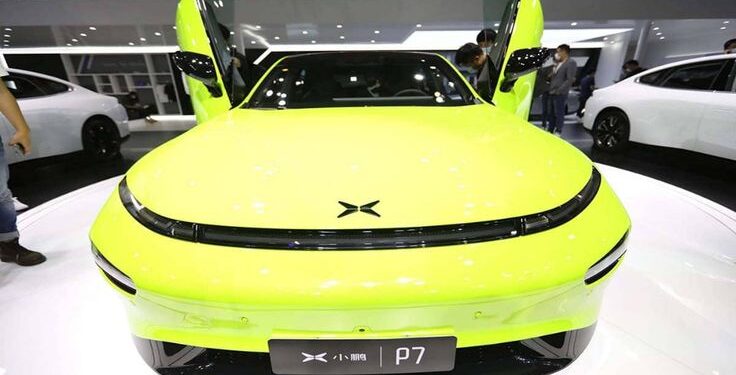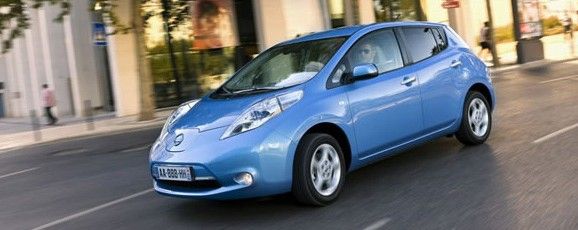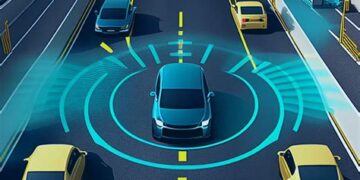In recent years, the electric vehicle (EV) market has experienced a remarkable surge, transforming the automotive landscape. Global EV sales have not only risen steadily but have now broken all previous records, setting a new benchmark for the industry. This monumental shift is driven by a confluence of factors ranging from technological breakthroughs and evolving consumer preferences to supportive government policies and environmental imperatives. As traditional combustion engines give way to cleaner, more sustainable alternatives, the transition toward electric mobility represents one of the most significant changes in transportation history.
The unprecedented growth in EV sales is indicative of a broader transformation. Consumers worldwide are increasingly aware of the benefits that electric vehicles offer, such as reduced emissions, lower maintenance costs, and improved performance. Moreover, advancements in battery technology and charging infrastructure have mitigated many of the earlier limitations that hindered the adoption of EVs. Today, electric vehicles are not just a niche product but are emerging as a mainstream option for environmentally conscious drivers and businesses alike.
This article examines the factors that have contributed to the record-breaking surge in electric vehicle sales, the role of government incentives and corporate investments, and the future outlook for the industry. It also explores the challenges that lie ahead and provides insights into how major automotive players and startups are positioning themselves in this rapidly evolving market.
Global Growth of the Electric Vehicle Market
The past decade has seen a radical shift in global transportation, with electric vehicles becoming an increasingly popular choice for both private consumers and fleet operators. Several regions, including Europe, North America, and parts of Asia, have witnessed exponential growth in EV sales. For example, European countries have implemented stringent emissions regulations that have accelerated the shift from diesel and gasoline vehicles to electric alternatives. Similarly, in the United States and China, massive investments in EV technology and infrastructure have propelled the market to new heights.
A comprehensive analysis of global EV sales reveals several key trends:
A. Rising Demand in Developed Markets:
Developed economies with high environmental awareness and advanced infrastructure are leading the charge in EV adoption. These regions benefit from robust government support and a mature automotive market that is ripe for innovation.
B. Emerging Opportunities in Developing Nations:
While developed markets continue to grow, developing nations are starting to recognize the benefits of electric mobility. Increased urbanization, coupled with the need for sustainable transport solutions, is fostering growth in these regions as well.
C. Technological Advancements:
The evolution of battery technology, improved range, and faster charging solutions are making electric vehicles more appealing to a broader audience. Continuous innovation in these areas is critical to sustaining long-term growth.
D. Corporate and Fleet Adoption:
Beyond individual consumers, businesses are increasingly incorporating EVs into their fleets. Companies are attracted by the potential for reduced operational costs, enhanced corporate image, and the long-term economic benefits of electrification.
The confluence of these factors has not only driven up sales but also attracted significant investments from traditional automakers and new market entrants. As the industry continues to mature, it is poised to make even greater inroads into global transportation networks.
Factors Driving Record-Breaking EV Sales
The dramatic rise in electric vehicle sales is attributable to several interrelated drivers that are reshaping consumer behavior and industry practices.
A. Environmental Concerns and Climate Change
One of the most compelling reasons behind the EV boom is the increasing urgency to address climate change. Governments and consumers alike are more aware of the detrimental impact of fossil fuel emissions on the environment. Electric vehicles offer a cleaner alternative by significantly reducing greenhouse gas emissions, thereby contributing to improved air quality and a healthier environment.
B. Government Incentives and Regulatory Support
Public policy has played a crucial role in the rapid adoption of EVs. Many governments around the world have introduced subsidies, tax breaks, and other incentives to encourage consumers to switch to electric vehicles. These policies not only make EVs more financially accessible but also signal a commitment to sustainable development. Examples of such initiatives include:
A. Tax Rebates: Financial incentives for purchasing EVs help offset the higher upfront costs.
B. Subsidies for Charging Infrastructure: Investments in charging stations facilitate broader EV adoption by addressing range anxiety.
C. Emissions Regulations: Stringent environmental standards force automakers to innovate and invest in electric powertrains.
C. Technological Breakthroughs
The rapid advancement in battery technology has been a game-changer for the EV market. Improvements in energy density, battery lifespan, and charging speed have significantly enhanced the performance and convenience of electric vehicles. Key technological developments include:
A. Lithium-Ion and Beyond: Enhanced battery chemistries have increased the range and reduced charging times.
B. Smart Charging Solutions: Integration with smart grids allows for efficient energy management and load balancing.
C. Battery Recycling Programs: Sustainable battery recycling initiatives contribute to a circular economy and reduce environmental impact.
D. Shifting Consumer Preferences
Consumer attitudes are evolving as people become more conscious of sustainability and long-term savings. The total cost of ownership for EVs is becoming increasingly competitive compared to traditional vehicles. Consumers are not only drawn to the environmental benefits but also to the modern design, lower maintenance costs, and the quiet, smooth driving experience that EVs provide.
E. Corporate Strategies and Investment
Automakers are strategically reorienting their portfolios to embrace electric mobility. Significant research and development efforts are underway, and many companies are announcing plans to phase out internal combustion engines entirely. This transition is supported by strategic partnerships, venture capital investments in EV startups, and collaborations with technology companies to advance autonomous driving and connected car systems.
Government Incentives and Policies
Governments across the globe have recognized the importance of electric vehicles in achieving environmental targets and reducing dependence on fossil fuels. Policy frameworks and regulatory measures are critical drivers in the expansion of the EV market.
A. Financial Incentives
Governments are employing a range of financial incentives to stimulate EV adoption. These measures include direct subsidies, tax credits, and reduced registration fees. Such incentives help lower the effective cost of electric vehicles, making them more competitive with conventional cars.
B. Investment in Charging Infrastructure
A robust charging network is essential for widespread EV adoption. Many countries are investing heavily in the development of charging infrastructure, ensuring that both urban and rural areas have access to fast-charging stations. These investments alleviate concerns related to range anxiety and provide the necessary support for a growing EV fleet.
C. Regulatory Mandates
Environmental regulations, such as strict emissions standards and fuel economy targets, compel automakers to accelerate the production of electric vehicles. Regulatory mandates not only drive innovation but also level the playing field, encouraging fair competition and rapid market adoption.
D. Public-Private Partnerships
Collaborations between governments and private companies are crucial in scaling up the EV ecosystem. Public-private partnerships facilitate the sharing of resources, technology, and expertise, driving the development of integrated solutions that benefit the entire sector.
Major Electric Vehicle Manufacturers
The record-breaking growth in EV sales is supported by the efforts of both established automakers and innovative startups. Several key players have emerged as leaders in the electric vehicle market, each contributing to the transformation of the industry.
A. Legacy Automakers
Traditional automotive giants have made significant strides in electrification by reallocating resources and investing heavily in EV technology. Companies such as:
A. Tesla: Often seen as the pioneer of modern electric vehicles, Tesla continues to push the envelope with its cutting-edge technology and innovative designs.
B. Volkswagen: The company has committed to a major electrification strategy, launching a series of new models designed to capture a larger market share in the EV segment.
C. General Motors: With ambitious plans to become a fully electric brand in the near future, GM is investing billions in research, development, and production facilities.
B. New Market Entrants
In addition to traditional automakers, several new players are emerging with disruptive business models and innovative technologies. Startups and tech companies are entering the market, offering unique solutions that challenge conventional approaches to mobility. These new entrants are often more agile and able to respond quickly to market trends.
C. Strategic Alliances
Collaborations between technology firms, battery manufacturers, and automotive companies are becoming increasingly common. These alliances help companies leverage complementary strengths, from advanced battery technologies to sophisticated manufacturing processes. Such strategic partnerships are critical in addressing the complex challenges of scaling up production and maintaining high-quality standards.
Advancements in EV Technology
Technological innovation is at the heart of the electric vehicle revolution. Recent advancements have addressed many of the historical limitations associated with EVs, such as limited range, long charging times, and high costs.
A. Battery Innovation
The evolution of battery technology is a major contributor to the growth of the EV market. New battery chemistries and designs are enabling longer ranges and faster charging times, making EVs more practical for everyday use. Key developments include:
A. Solid-State Batteries: Promising greater energy density and enhanced safety compared to conventional lithium-ion batteries.
B. Fast-Charging Technologies: Innovative charging solutions that significantly reduce the time required to recharge EVs.
C. Battery Management Systems: Advanced software systems that optimize battery performance, extend lifespan, and ensure safety.
B. Autonomous and Connected Features
The integration of autonomous driving technologies and connected car systems is transforming the EV experience. Features such as adaptive cruise control, lane-keeping assistance, and real-time traffic updates not only enhance safety but also improve overall driving comfort. These advancements are supported by the latest in sensor technology, artificial intelligence, and data analytics.
C. Smart Integration with Renewable Energy
Electric vehicles are increasingly seen as a crucial component of a sustainable energy ecosystem. The synergy between EVs and renewable energy sources is becoming more evident as smart grid technologies evolve. This integration allows for:
A. Vehicle-to-Grid (V2G) Technology: Enabling EVs to feed electricity back into the grid during peak demand periods.
B. Solar Charging Solutions: Leveraging solar panels and renewable energy sources to power EV charging stations.
C. Energy Storage Systems: Using EV batteries as temporary storage solutions to balance supply and demand.
The Impact on Environment and Economy
The surge in electric vehicle sales has far-reaching implications for both the environment and the global economy. Transitioning to electric mobility contributes significantly to reducing greenhouse gas emissions and mitigating climate change. Cleaner air quality, lower noise pollution, and reduced dependency on fossil fuels are some of the environmental benefits that come with widespread EV adoption.
A. Environmental Benefits
Electric vehicles produce zero tailpipe emissions, which is a critical advantage over traditional combustion engines. As more EVs hit the roads, the cumulative effect on reducing air pollution and improving public health is profound. In addition, advancements in battery recycling and sustainable manufacturing practices are further minimizing the environmental footprint of electric vehicles.
B. Economic Opportunities
The rise in EV sales is creating new economic opportunities in various sectors, including manufacturing, technology, and renewable energy. Job creation in these industries is on the rise as governments and corporations invest in the infrastructure and technologies that support electric mobility. Moreover, the shift to electric vehicles is driving innovation and competition, which can lead to lower prices and more options for consumers.
C. Global Supply Chain Transformation
The transformation of the automotive industry is prompting significant changes in global supply chains. From raw materials such as lithium and cobalt to advanced manufacturing techniques, the EV revolution is reshaping how industries operate on a global scale. Companies are increasingly focused on building sustainable and resilient supply chains to meet the growing demand for electric vehicles.
Challenges Facing the EV Industry
Despite the record-breaking surge in EV sales, the electric vehicle industry faces several challenges that need to be addressed for continued growth and success.
A. Charging Infrastructure Limitations
While investments in charging networks are on the rise, there is still a need for more comprehensive coverage—especially in rural and remote areas. The availability and reliability of charging stations are critical factors in driving consumer confidence and widespread EV adoption.
B. Supply Chain Constraints
The rapid growth in EV production has put pressure on supply chains, particularly for key components like batteries. Ensuring a stable and sustainable supply of raw materials is essential to avoid production bottlenecks and maintain market momentum.
C. High Initial Costs
Although the total cost of ownership for electric vehicles is becoming more competitive, the upfront purchase price remains a barrier for many consumers. Overcoming this challenge requires further economies of scale, technological innovation, and continued government support in the form of financial incentives.
D. Technological Uncertainty
As the EV industry continues to evolve, uncertainty about the long-term performance of new battery technologies and autonomous systems persists. Companies must invest in research and development to ensure that emerging technologies are reliable, safe, and scalable.
E. Consumer Perception and Education
Many potential buyers still harbor misconceptions about electric vehicles, such as concerns over range limitations and battery degradation. Educating consumers about the advancements in EV technology and the tangible benefits of switching to electric mobility is vital for sustained market growth.
Future Outlook of Electric Vehicles
Looking ahead, the future of electric vehicles is both promising and dynamic. Industry experts predict that the growth trajectory of EV sales will continue as technological improvements, policy incentives, and consumer acceptance converge to create a robust market environment.
A. Increased Market Penetration
Analysts expect that as more manufacturers introduce a wider range of models, the market penetration of electric vehicles will continue to accelerate. Economies of scale and further improvements in battery technology are likely to reduce costs, making EVs accessible to a broader demographic.
B. Technological Integration
The convergence of electric vehicle technology with autonomous driving, smart connectivity, and renewable energy systems will open up new possibilities for mobility. Future vehicles will not only be electric but also fully integrated with digital ecosystems, providing enhanced safety, efficiency, and user experiences.
C. Policy and Regulatory Support
Government policies will continue to play a crucial role in shaping the future of the EV industry. As climate change and energy security remain at the forefront of global concerns, policies that support electric mobility, invest in infrastructure, and promote sustainable practices will be key drivers of market expansion.
D. Environmental and Economic Transformation
The widespread adoption of electric vehicles is expected to lead to a significant reduction in carbon emissions and foster economic growth in sectors related to renewable energy and advanced manufacturing. The shift to electric mobility is not only a technological revolution but also a pivotal moment in addressing environmental challenges and promoting sustainable development.
Conclusion
The electric vehicle revolution is in full swing as global sales continue to break records and redefine the automotive landscape. Driven by environmental imperatives, technological advancements, supportive policies, and shifting consumer preferences, the EV market is transforming the way we think about transportation. Record-breaking sales are a testament to the rapid adoption of electric vehicles across diverse regions and demographics.
The journey toward a fully electrified future is not without challenges, including infrastructure gaps, supply chain constraints, and initial cost barriers. However, the ongoing innovation and commitment from both the public and private sectors are paving the way for a sustainable and prosperous future in mobility. As companies, governments, and consumers work together to overcome these challenges, the electric vehicle market is set to not only continue its record-breaking growth but also drive significant environmental and economic benefits worldwide.
In summary, the record-breaking surge in electric vehicle sales represents a major milestone in the global shift toward sustainable transportation. With continued technological progress, policy support, and consumer education, electric vehicles are poised to become the standard for mobility in the 21st century.












